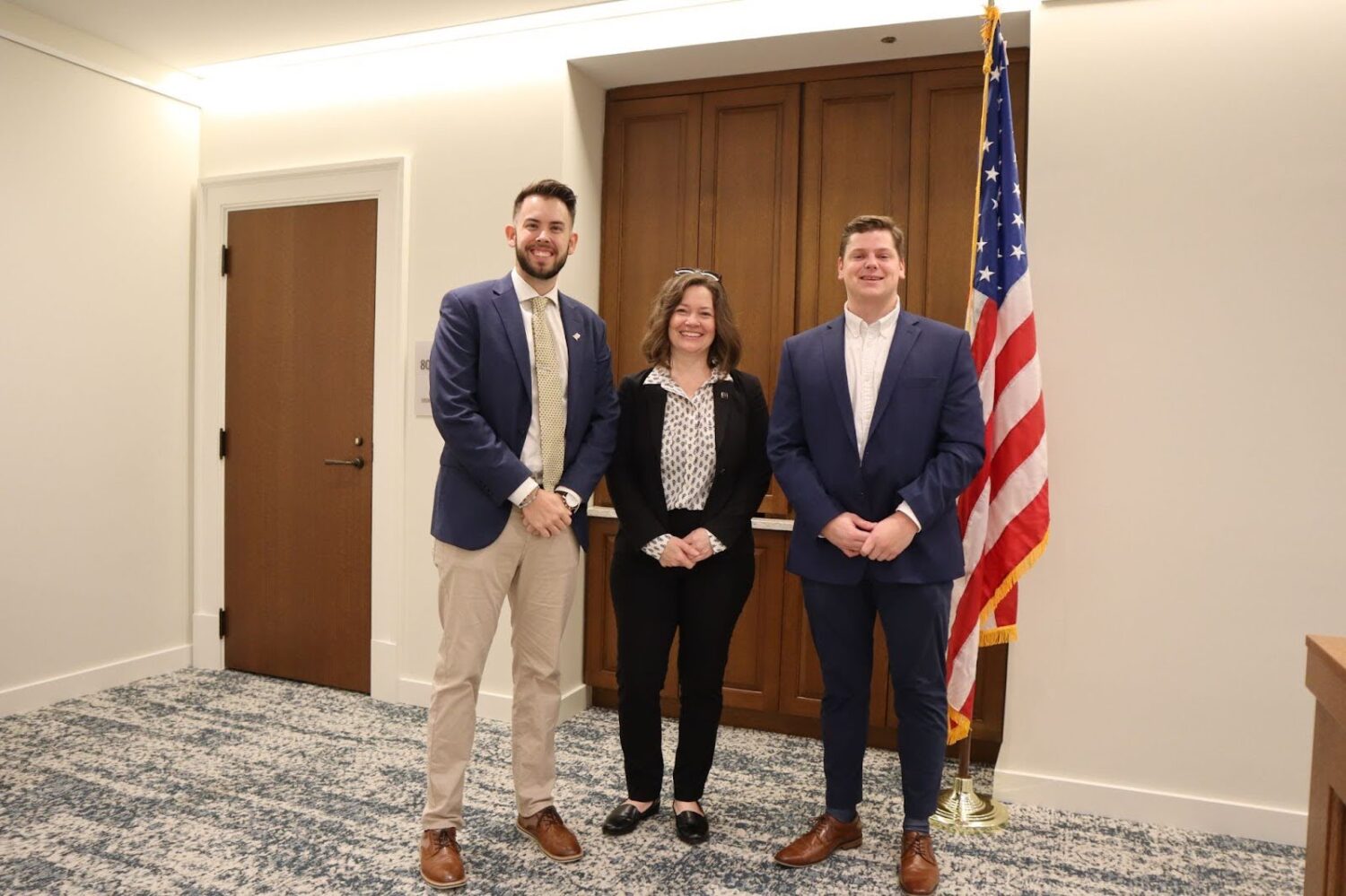|
|
|
Happy Friday!
January 17, 2025
|
|
|
|
With the roads clear and the snow melting away, our team was back out on the roads across the Commonwealth visiting counties on our mission for
Clean Energy the Right Way.
|
|
|
|
|
|
Conservative Energy Caucus:
Insights and Innovation
|
 |
|
|
|
As the 2025 Virginia legislative session begins, we want to outline one of our Energy Right’s legislative initiatives during these quick, productive 45 days. On Wednesday, January 16th, we hosted our first meeting during this year’s Conservative Energy Caucus. Guest speaker Sarah Jackson from Form Energy gave insight about Virginia’s first long duration energy storage project to a host of legislators, staff aids, and members of the public. Throughout the rest of the legislative session, there will be gatherings with guests involved in a wide array of sectors: nuclear, solar grazing, landowners, and academic fields alike to give invaluable insight into the world of renewable energy and how the many paths intersect here in our Commonwealth. Meetings are bright and early at the General Assembly, but there will be coffee and donuts at every meeting to help jumpstart the day.
We also want to give one last spotlight on our upcoming Legislative Reception being held next Wednesday here in Richmond! It’s one of Energy Right’s most successful events as it brings together legislators, industry partners, and local officials to keep the conversation moving in the right direction on clean energy in Virginia. This all-star event will take place at the Omni Richmond Hotel from 5-7pm in the Magnolia Room. Food and refreshments will be provided, and we’ll be highlighting those counties, legislators, and industry partners who had the most impact in Virginia. If you would like to attend, or for more information about the event, follow the link here, or reach out to team member Dylan at dylan@energyrightus.org.
|
|
|
|
|
|
|
|
|
|
|
|
Can Solar Save the Family Farm?
|
|
|
|
|
Solar farms are proving to be a vital lifeline for farmers struggling to maintain their operations and keep ownership of their land. Leasing a portion of their property for solar energy production offers farmers a stable, long-term income stream that complements their agricultural earnings. This steady revenue provides the flexibility needed to weather unpredictable seasons and rising costs, allowing agricultural practices to thrive on the remaining acreage. For many, this is not just about income—it’s about preserving a heritage and connection to the land that has often been in their families for generations.
Beyond providing financial security, solar farms serve as a practical conservation tool, safeguarding rural landscapes from irreversible development. Unlike industrial or residential construction, solar installations leave a light footprint. Panels can be removed at the end of their operational life, returning the land to its original state. This temporary use protects the soil, preserves the land’s future agricultural potential, and acts as a buffer against permanent conversion. For communities, this approach represents a win-win: economic benefits for local farmers and increased clean energy generation for the region.
Supporting responsible solar farm development strengthens communities in other significant ways. Not only do these projects offer clean energy to meet growing demands, but they also boost local tax revenues, funding schools, emergency services, and infrastructure improvements. Thoughtfully sited solar farms allow communities to embrace renewable energy without sacrificing their agricultural roots or rural character. By bridging the needs of farmers and the future of clean energy, Virginia continues to build a model of sustainable progress.
|
|
|
|
|
|
|
|
|
|
|
|
This week, our team went to Brunswick, Suffolk, Sussex, and Washington counties!
|
|
|
|
|
|
|
 |
|
Sussex County
|
|
|
|
Energy Right joined a community meeting in Sussex County to learn about a new solar project and connect with local residents. We had the chance to engage with supportive community members and discuss how the project can bring meaningful benefits to the area, fostering collaboration and enhancing Sussex County’s future.
|
|
|
|
|
|
|
|
Why solar power matters for my Augusta County family farm
|
|
Donna Miller of Augusta County offers a poignant reflection on a missed opportunity: a 150 MW solar project on her family’s 75-year-old farm was blocked by the county commission, despite its potential to provide $3.25 million in tax revenue, financial stability for the farm, and clean energy for the community.
Miller talks about solar’s unique, low-impact advantages—offering temporary land use that preserves farmland while generating much-needed income for struggling farmers. Her story is a powerful reminder of the need for balanced solar siting policies that honor landowner rights, address local concerns, and advance Virginia’s renewable energy goals to support both farms and communities.
|
|
|
|
|
|
|
|
|
|
NEXT WEEK
We’ll be heading out to Brunswick, Lunenburg, Richmond, and Surry counties!
|
|
|
|
|
|
|
|
|
|
The Fauquier County Board of Supervisors approved a 93-acre, 14-megawatt solar facility proposed by Bealeton Solar LLC in the Lee District, marking a key step in the county’s approach to renewable energy. Supported by a $250,000 payment to Fauquier County and $100,000 to Remington, the project offers financial benefits while preserving 68 acres of wetlands and vegetation.
Set to connect to Dominion Energy’s grid without significant upgrades, the facility will undergo an eight-to-10-month construction process starting mid-2026. With robust decommissioning plans in place, the project balances renewable energy goals with local concerns over land use and environmental impact
|
|
|
|
|
|
|

